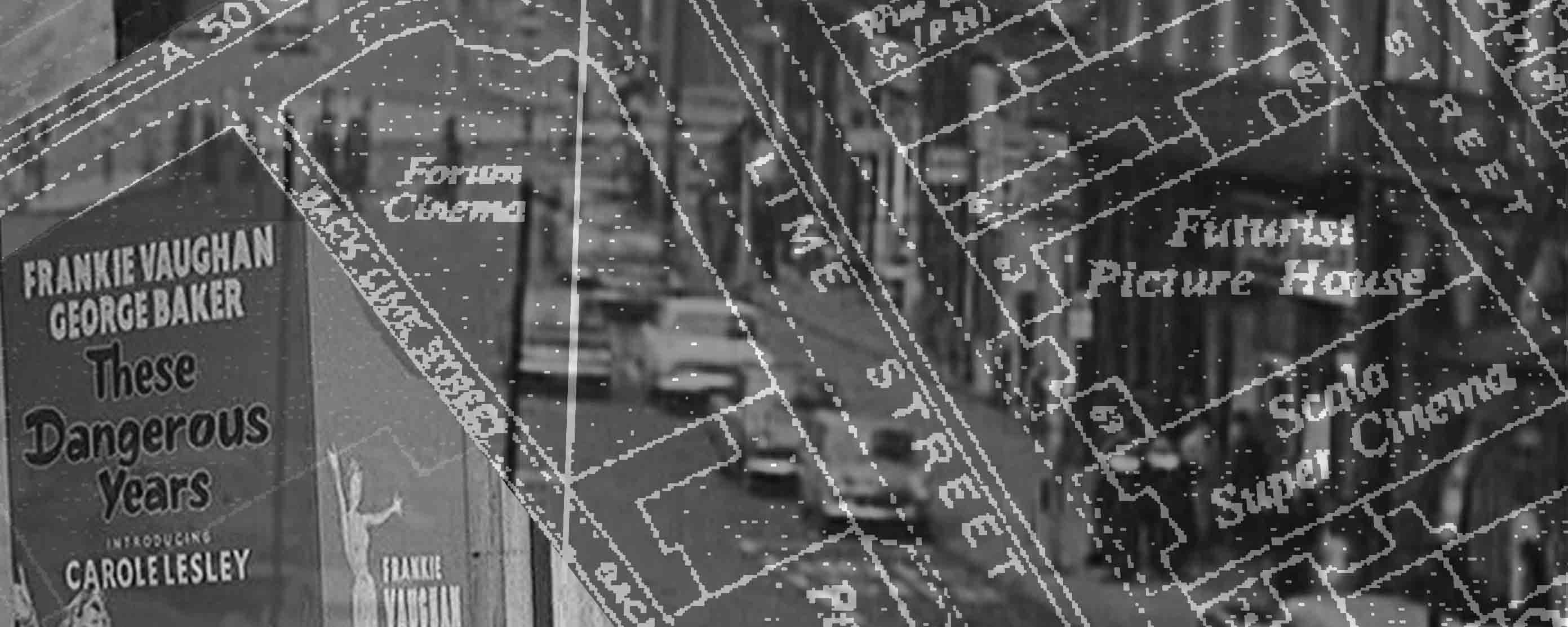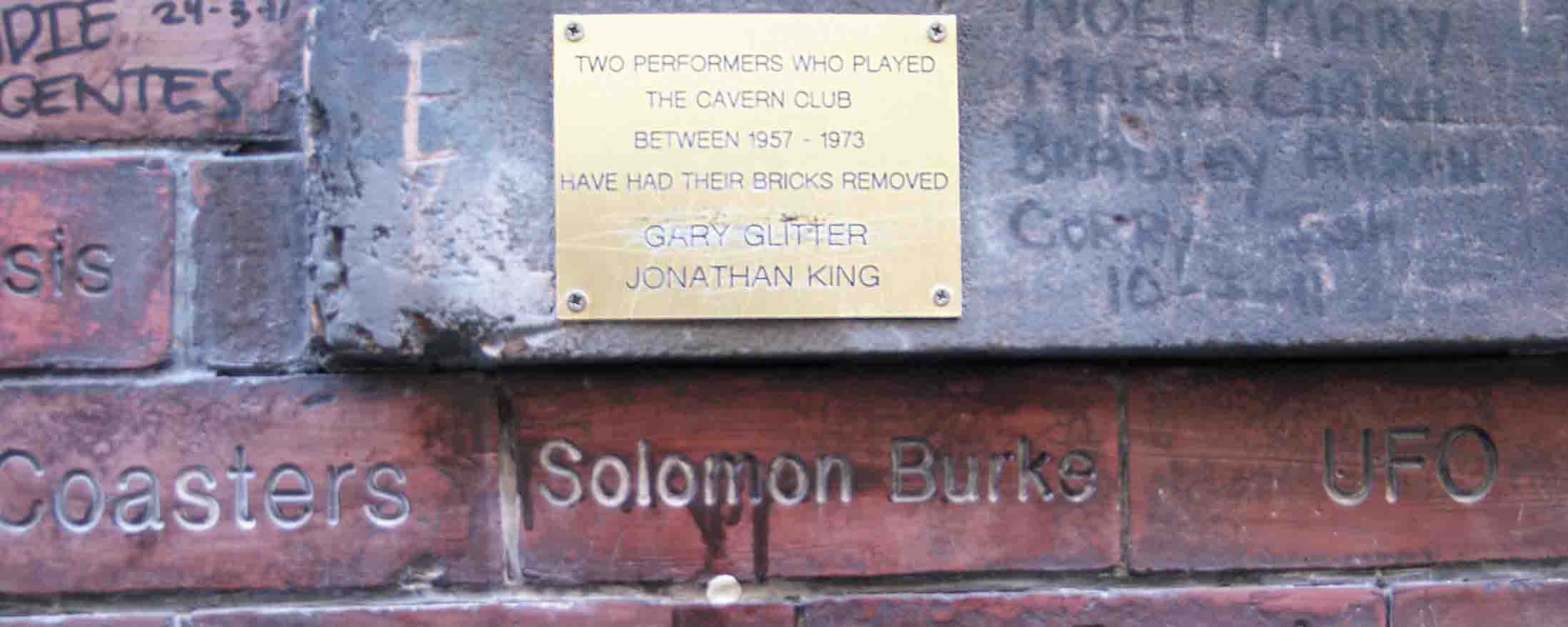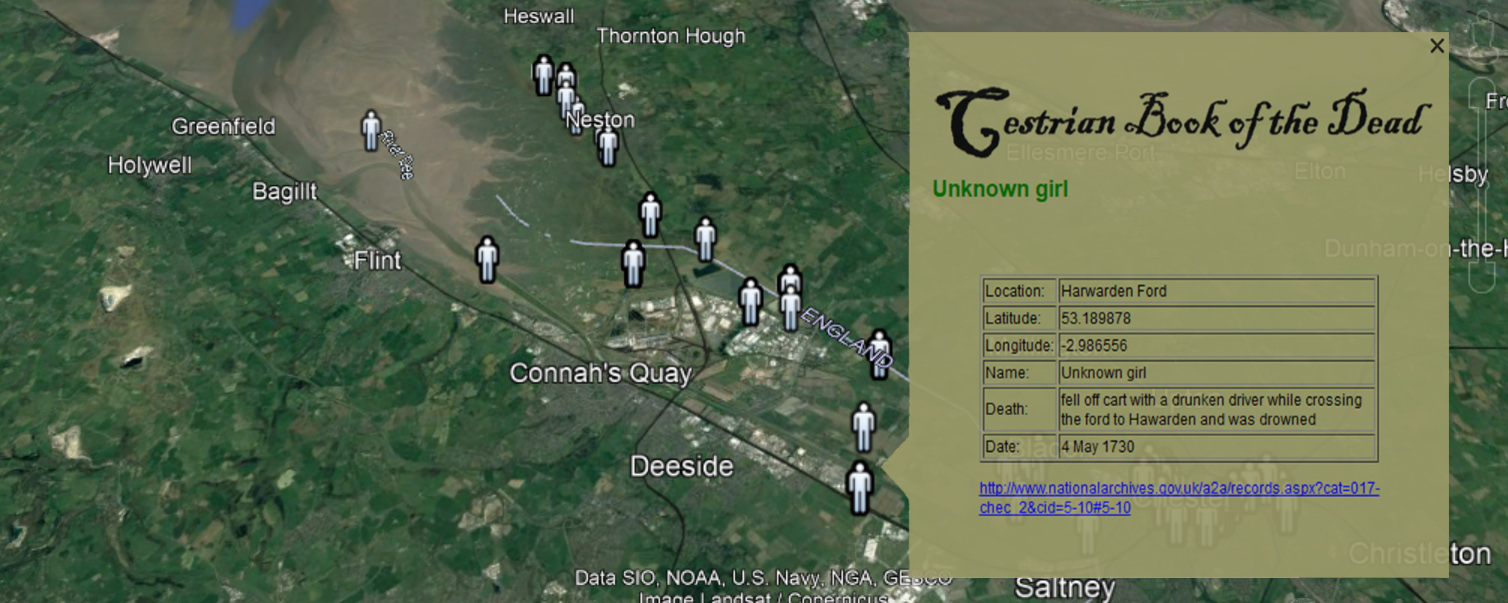Dr Les Roberts BA (London) PhD (Middlesex)
Reader in Cultural and Media Studies Communication and Media
- +44 (0)151 794 3102 Ext. 43102
- Work email Les.Roberts@liverpool.ac.uk
- Personal Websitehttp://www.liminoids.com
- ORCID0000-0002-1753-4872
- About
- Research
- Publications
- Teaching
- Professional Activities
Research
Research Overview
My research interests are interdisciplinary in scope and fall broadly into the following overlapping areas: 1) Spatial anthropology and urban cultural studies; 2) Memory-work and everyday cultures; 3) Liminality and the poetics of movement. I welcome enquiries about collaboration and doctoral supervision relating to any of these research areas.
Spatial anthropology and urban cultural studies

Much of my research explores the interface between space and culture. This has taken, and continues to take, a number of different forms, but a long-standing area of interest has been the role of moving image cultures in the social and cultural production of space. This has its origins in my PhD research, completed in 2005 (Utopic Horizons: Cinematic Geographies of Travel and Migration), through to my post-doctoral research working on the City in Film and Mapping the City in Film projects at Liverpool (2006-2010), and to work on film and screen tourism. More recent research directions have widened the focus beyond film and space to explore interdisciplinary developments in the spatial humanities and spatial anthropology. This too has taken a number of different forms, including work on mapping cultures, deep mapping and psychogeography, and phenomenological and autoethnographic approaches to everyday spatial cultures and practices. Current research involves the development of what I am referring to as ‘dwellspace’, which embraces more psychosocial understandings of space, time and everyday life and dovetails with another long-standing research area: liminality and liminal spaces.
Memory-work and everyday cultures

My research in spatial anthropology and urban cultural studies has remained closely bound up with questions of cultural memory. Memory and everyday life have provided a central underpinning of work focused on archival film practices and urban historiography, and have informed the development of approaches to research in the wider fields of spatial humanities and spatial anthropology (as these have shaped, for example, critical-creative orientations towards ‘deep mapping’). Memory-work and an attentiveness towards the routes, structures and affects of cultural memory have been at the core of research initiated as part of the Europe-wide project Popular Music Heritage, Cultural Memory and Cultural Identity (POPID) (2010-2013). This has been developed across a number of different publications, including a special issue of the International Journal of Heritage Studies and the co-edited volume, Sites of Popular Music Heritage (both 2014). The most recent publication that addresses research in this area is the paper 'Songlines are for Singing: Un/Mapping the Lived Spaces of Travelling Memory', which is part of the Humanities special issue on The Phenomenology of Travel and Tourism edited by myself and Hazel Andrews.
Liminality and the poetics of movement

A third key strand of my research has been an interest in liminal and transitional spaces. Again, this has its roots in my doctoral research on cinematic geographies of travel and migration, and has been the focus of a number of different publications and projects, many developed in collaboration with Hazel Andrews, Professor of Tourism, Culture & Society at Liverpool John Moores University. These include the 2012 edited collection, Liminal Landscapes: Travel, Experience and Spaces In-between, as well as the Humanities special issue on The Phenomenology of Travel and Tourism. Liminality has informed ongoing research into the spatial anthropology of the Dee Estuary, the most recent focus of which is the paper (co-authored with Hazel Andrews) ''Tracing lines in the Hilbre sands: a spatial anthropology of islandness and other fictions', in the Irish Journal of Anthropology (2024). Interest in liminality and spaces in-between also extends into current writing on the poetics of movement (and the application of ‘poetic-inductive’ methods) and the phenomenology of ‘dwellspace’ (which is the subject of the 2023 monograph: Posthuman Buddhism and the Digital Self: the Production of Dwellspace).
Research Grants
Music, Photographs and Stories from the Archives
ARTS AND HUMANITIES RESEARCH COUNCIL
February 2016 - September 2017